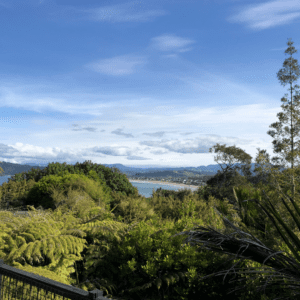I decided to start learning guitar recently.
Yeah, it’s going okay.
My flatmate left his battered, poorly strung guitar in the lounge a few months ago after I said I might be keen to have a go with it. (Not his fault it was poorly strung, by the way – another friend of his did a really bad job restringing it. Anyway.) Those months passed without me picking it up once – until he told me one Tuesday that he was going to give it away to someone who’d take it if nobody else was interested. ‘No! Mine!’ cried my greedy little goblin brain. I took it out of the stand, strummed it for the first time – and something in my brain harmonised with it.
My flatmate must have seen that in my expression, because he laughed and told me I could still have it if I wanted. I’m pretty sure I said thank you before I scuttled back to my room and looked up tutorials online.
It was very obvious very quickly that if I was going to learn anything – without it sounding like shit, anyway – I’d need to get the guitar restrung. There’s a music store less than a block away from my apartment. Maybe if I’d realised it was so close, I would’ve gotten around to all of this sooner (unlikely). Thirty-five bucks and a Saturday afternoon later, I took the newly-strung guitar home and went back to those tutorials I’d been watching.
Spoiler alert: it still sounds like shit when I play it. That’s not its fault – I also bought a digital tuner to get those strings hitting the right notes. But I’m a total beginner. My fingers have barely started forming calluses, chords as simple as A minor leave me convinced this is an instrument designed with dextrously taloned demons in mind, and I can play with all the pace of a slow-burning novel, less the burn. On the plus side, I’m having fun (just don’t ask me about chord changes or buzzing strings).
I have no plans to switch careers from storytelling to songwriting. But. Starting from scratch with learning guitar has been a great reminder of the sheer dedication and work it takes to acquire a skill. I don’t believe anyone can ever truly master something, in the same way that I don’t believe perfection can exist. We can always learn more about the world, about ourselves and our skills – especially from each other. Thomas McCormack puts it well in The fiction editor, the novel, and the novelist:
Realize that no book, person, or multiplex thesis will ever be perfect. The motive that simply yearns to be able to sneer the whole thing away is an impoverishing one; I know because I’ve seen myself do it and, after reflection, I realized that not only was I not larger by having taken in the good fraction of what I rejected, I was actually smaller in the way that our small acts make us. […] If ever you reach the point where you are convinced no one knows anything worthwhile that you don’t, or where you feel no rush at the prospect of encountering someone who could teach you new things in your work, the top layer of your brain has died.
And this is what excites me so much about starting my journey with Te Papa Tupu. Not only am I surrounded by a phenomenal community of alumni, mentors, and the teams at Huia Publishers and the Māori Literature Trust – I’m also joining a cohort of mentees who are each talented and highly skilled storytellers in their own right. After the first day of workshops, we all went to the Huia office for dinner. When the waiata welcoming us to the space finished, the small part of me that still doubted whether I really belonged there (“you’re not Māori enough”, “why don’t you know the kupu?”, and other delights) had gone bashfully quiet. Because – as corny as I know this sounds – I felt like I’d come home.
One of the most common shared experiences in the ADHD community is our tendency to hyperfixate on a new interest or hobby for a short period, then move on to something else. I can’t and won’t speak for everyone as to why this happens – but for me, I often get frustrated at myself when I’m not good at something immediately, and the initial dopamine buzz of learning a new thing fades long before I begin really getting a handle on a skill. Once I hit that point, it doesn’t take much for me to move on to the next hyperfixation.
I want learning guitar to be different. I used to play keyboard in high school, but it’s been years since I played any other instruments. So when my mentor asked me to write up a timetable for me to use during Te Papa Tupu, I made sure to carve out time to practice guitar and do my daily reo Māori lessons. Those two go hand-in-hand to me, in a way. I don’t know any waiata, or many karakia for that matter. I’d love to be able to complement my off-key singing with some amateur guitar skills (although I don’t know how impressed my whānau will be next time I visit the marae).
There were times in my life where I seriously wondered whether writing was another hyperfixation. Sure, I’ve been writing stories since I learned how to write – but I never finished any big projects. My first (abandoned) attempt at writing a novel is still out there in the wilderness of Wattpad. One underlying issue was almost certainly my then-undiagnosed ADHD. Without that way of knowing myself, all I could see was the ever-growing pile of discarded notebooks and failed attempts.
One example that still stings a little is a project I shelved a few years ago – deliberately, for once. I’d been working on it off-and-on for about four years by that point, and tested at least one friendship to its limit by constantly bouncing worldbuilding and story ideas off them. I still plan to go back to that story at some point, but I’d come to the painful realisation that I didn’t have the skill or life experience necessary to do it justice. But I think there was another, more fundamental reason why I struggled to finish those projects: I knew I wanted to write, but I didn’t know what I wanted to write, or why.
Once I’d shelved that project, the answers to the questions I wasn’t asking myself were obvious. Instead of forcing myself into the mould of high fantasy I’d been trying and failing at for so long, I needed to work on something that was truer to me. To who I am, and to my connection to the world. Tied into this was my growing desire to articulate my sense of identity as tangata whenua on the page.
So when I began jotting down ideas for Irirangi of the Valley (then-titled Bells, Bones, and Binding Stones), I knew from the outset that I wanted to tell a story about discordant and overlapping identities, about communities built on land stolen only a few generations ago – and, yes, about bells, bones, and binding stones. And I’m more than a little humbled that I get to continue working on my sprawling, rambling manuscript over the next six months, with the mentorship and guidance of Steph Matuku. The work won’t stop there, either. My high school adopted a motto while I was a student there: Piki ake – kia māia. Be determined – aim high. I thought it was a bit naff at the time, but it’s an ideal I ended up internalising anyway. If only I’d come across that McCormack quote sooner.
To you, reading this while Te Papa Tupu 2022 is ongoing, and to you, who will follow us in years to come: keep going. I know that seems easy for me to say, writing from the bully pulpit of my own journal entry now that I’ve been selected for this programme. But we are storytellers by the very essence of ourselves. Bring the stories that burn in your breast into the world. Give them voice. Above all, don’t be disheartened if you fail a few times first (or, in my case, quite a few). Learn from every failure, and find a better way.





